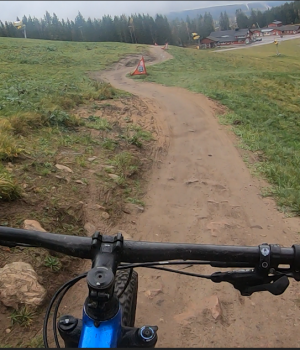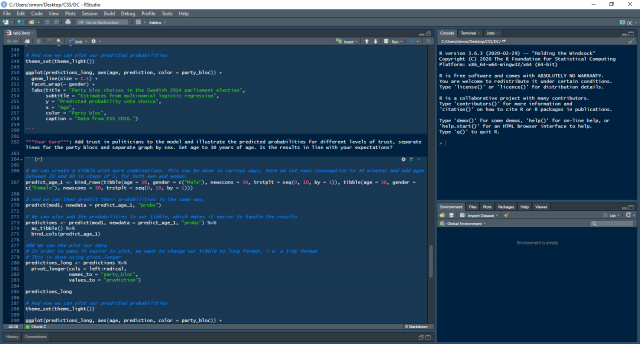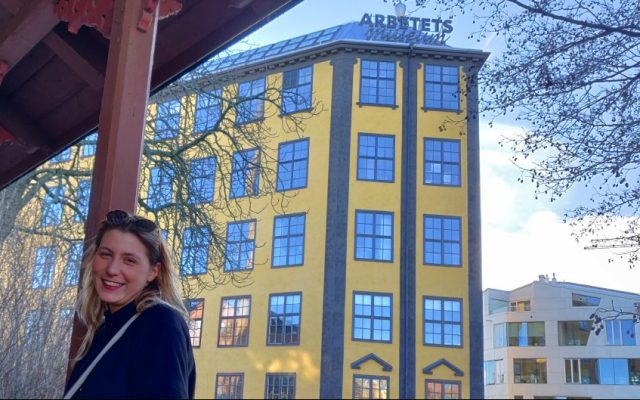January 20, 2021
What I think of my programme, LiU and Sweden! – Part 1: my programme, Computational Social Science
Hi guys!
This might come as an abrupt blog post as I am actually new to the platform, meaning that this is my first publication here! However, I have been active as a student ambassador for LiU since Fall 2019, which is when I started at LiU as a Computational Social Science Master student. Since then I have been podcasting and running Instagram for the entire past summer, so if you want to see a little bit of what I got up to in the past, go check out my IGTV videos! Here is a brief interview to myself, for you to know about me, before I get on with the salient elements of this post: what I think of my programme, Computational Social Science! I also partook in a webinar about my programme in the fall, so if you prefer watching that, here it is:
Name: Simona
Nationality: Italo-Swedish (Italian father/Swedish mother)
Programme: Computational Social Science (currently in my second year)
Location: I live in Norrköping and my course is also based at Campus Norrköping
Life story in one sentence: born and raised in Italy, left the country at 18 to study Journalism at Robert Gordon University in Scotland for four year, lived and worked in Ireland for two years after that, moved to Sweden in 2019 to study Computational Social Science at LiU
Why Sweden? I wanted to live for a while in the country of my mother. I don’t speak perfect Swedish, so I thought living in Sweden would have helped me develop linguistical skills and also understand the culture better. On another note, the pro of having the CSS course offered by LiU (a rarity of a course, since it is an emerging field), and having free university as a EU student were two big motivations that made the choice of relocating to Norrköping ideal.

What I am like: I am a bit of a hyperactive person: standing still is not really my thing, though I enjoy channeling in computer-based work too. Beyond working and studying at my desk, you will find me running outdoors or riding my bike in awesome forest trails. I love dancing and being surrounded by people, so I am definitely happy that during this pandemic I lived in student corridor and have seven flatmates to enjoy the company of! Here is a snippet of a fine summer day activity I got up to and shared with the LiU community: https://www.instagram.com/tv/CB_hSV8FXUE/
Okay, let’s get on with my programme! My views and an overview on…
The type of learning the programme will give you: Computational Social Science (CSS) is somewhat of an emerging field, as it’s been enabled by recent developments in technology and data science. CSS sits at the intersection between mathematics and statistics, social science and computer science, and LiU’s MSc in CSS really embodies this. Here, you will be develop skills in all three fields, yet simultaneously you will not master any of those fields as you would if you took a master solely in sociology or statistics. So expect to reap the benefits of multi-disciplinary learning! At first, you will learn basics of statistics, computer programming in R, and social scientific thinking and theory (sociology and behavioural psychology). Once the basics are set, you will bring those together and learn about existing research from the field of CSS, and learn to do similar type of research yourself, touching upon different cornerstone tools and fields within CSS: Agent-Based Modeling, Social Network Analysis, Discrete Choice Modeling, Web Scraping and Dimensionality Reduction Methods, Segregation and Inequality Measurement, Computational Methods to study Cultural Markets and Organizations, Big Data Ethics.

an overview of R Studio, where we carry out our exercises and practical assignments
The strengths of the programme: the programme will give you a vast array of tools that you can use in your future career. In this year and a half of being a CSS student, I went from knowing nothing about sociology, coding and statistics, to being able to perform research using all those combined, and I cannot wait to do this in my Master thesis now in the spring! On another note, the programme and its staff are well situated within the academic landscape, so if you want to pursue a PhD or work in academia, this is a great programme to develop great connections and keep an eye on opportunities both within LiU (at the Institute of Analytical Sociology) and outside. We get tipsed about vacancies in various universities all the time and a number of my classmates work as research assistants here at IAS, helping our professors in their research!
The weaknesses of the programme: the programme was born in August 2018, thus it is in its infancy! While it is true that CSS operates highly academically as a field, the programme as per right now does not offer many connections with industry. So if your dream is to work with private companies, here you won’t get that connections with industry, through partnerships and internships. Another thing I thought was missing, which I think might be implemented in the future, is a course in Computational Text Analysis. The skills can be self-taught once you already know how to code, and I am going to personally use computational text analysis in my thesis (and I don’t think I will be the only one). But be prepared that if it is your wish to do text analysis, you will have to personally invest some of your own time in developing the knowledge required for you to carry out such tasks.

The type of job you can get out of this master: as mentioned, the programme is great if you want to work/continue in academia. Nonetheless, with data analytics being a demanded skill by industry, you could also work as a data analyst in private industry (where thought you might compete with more technically skilled data scientists) or as a quantitative researcher/data analyst for the public sector/NGOs (where compated to data scientists you hold social scientific knowledge, which has its own advantages).
Myself, I wanted to do this master to learn about statistics and computer programming, in a way that suited a person with a background in the humanities, like me. In this sense, the programme taught me well, and I am hoping to use my newly acquired computational skills within the communication and media industry in the future!

me outside the iconic Arbetets Museum in Norrköping, near the university campus!
The classroom/professors: my classroom consists of around 25 students. We are all international students (with me and another guy being the only two Swedish in the class), coming from all sorts of backgrounds and countries. We have engineers, sociologists, political scientists, data scientists, people with background in education… We have people from Brazil, China, South Korea, Egypt, Germany, Italy, France, Spain, India… The professors are super friendly, get ready to develop a personal connection with them! It can feel strange at first, but it really enables you to voice your fears, thoughts and doubts. The professors are also a really international bunch, some are from the US, some from Sweden, Latina America, Germany and France! You will also meet a large number of guest lecturers, and additionally have the opportunity to attend seminars about research in the field organized by the IAS. Attending those can enable you to develop connections with professors in universities beyond LiU, and enlarge your network opportunities.
I hope this post gave you a sense of my personal experience and reflections upon my MSc in CSS, after having studied here for one and a half year! See you soon, with part 2, about my views on Linköping University!
Have a great week everybody!
Simona



